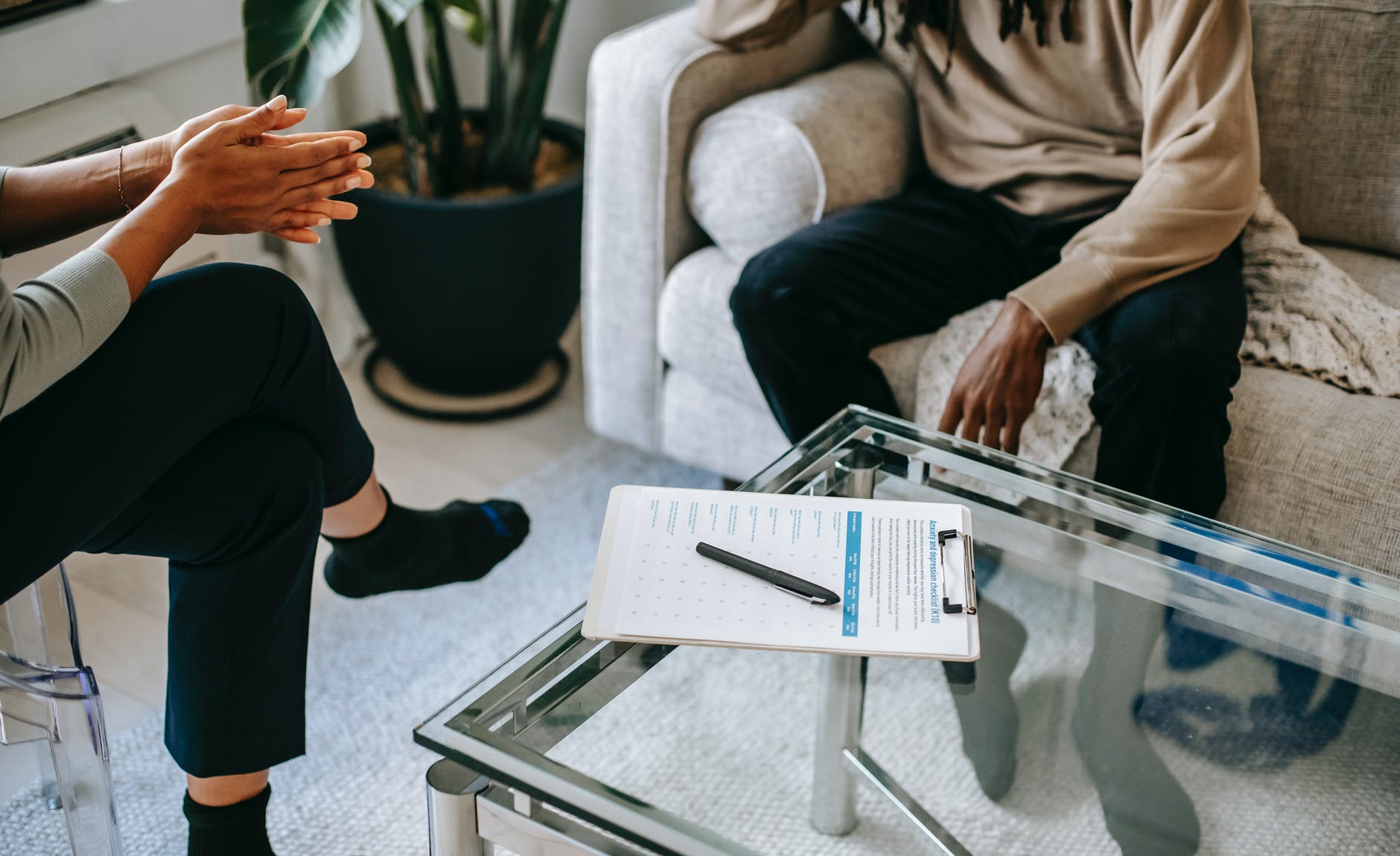What To Expect in Your First Therapy Session

Making your first therapy appointment is amazing! It means that you’ve decided to make yourself a priority and are taking your mental health into your own hands. It can also cause anxiety since it means meeting someone new and telling them things that you may have never said out loud before. The first therapy session tends to be the hardest since it’s all new and unknown.
To reduce your worry about what that process, I’ve compiled a list of what to expect during your intake session:

Bunch of Paperwork
Likely before you even meet with your new therapist, you will have a lot of paperwork to complete. This includes: consent to be seen for therapy, financial forms for insurance and fees, privacy laws, and personal history questionnaires. Intake sessions can be anywhere from 45 minutes to 2 hours depending on the therapist and type of therapy you’re seeking.
Filling out these forms ahead of time can help the therapist ask the right questions during your intake and make the most of the time allotted. Also, many therapists will not see you for the first session until the paperwork is completed. This is due to a number of legal issues and personal preferences. By completing it ahead of the deadline, you are showing you are committed to therapy and respecting their time.

Lots of Questions
I like to say that the intake session is basically “tell me about your whole life in the next hour”. The first session is all about the therapist getting to know you, including what you have experienced and are currently experiencing. The only way to get that info is by asking tons of questions. Although it may feel like an interview, it’s the most efficient way to use the time and narrow down what you need.

The Therapist Will Take Notes
I know most people get curious when they see their therapist writing down notes during the first session. It’s human nature! But it’s especially important during the first session since the therapist wants to get all the dates and info correct. Take it as the therapist is being really thorough instead of “why are they writing all of that about me?” I’ve had people in the past think that more notes meant they were “more messed up.” Definitely not the case! More notes typically means more details the therapist wants to get right in future sessions.

You’ll Talk About Your Reasons For Seeking Help
Therapists like to know if there was a specific trigger to the reason you decided to start therapy now. It helps them understand what your motivation is and where your head is at now. For your first therapy session, be prepared to discuss what led you to make the appointment.

Identify Goals for Therapy
Therapy is all about goals. Do you want to increase your self esteem? Have better relationships? Work through your childhood? Therapy works best when you have specific things you are trying to achieve and you likely decided to start therapy because you have a goal in mind, even if it’s difficult to narrow down. Be prepared to know what you want to work on or be prepared to have the therapist work with you on developing those goals.

You’ll Learn About the Therapist’s Style of Working
Not all therapists are the same. Some are very direct and straightforward in session. Others are more flexible and allow the client to decide what to talk about each appointment. Some therapists assign homework often and others never do. Think about how you work best. Do you feel like you need more structure because you have trouble focusing or staying committed to tasks? Or do you tend to have a ton of thoughts and feelings and prefer a free flowing therapy style? Use the first therapy session to discuss that with the therapist at the intake to make sure your style matches theirs.

Ask the Therapist Questions Too!
You should feel connected to your therapist and enjoy sessions, even though sometimes the topics that are discussed are difficult to talk about. This is someone you will be spending a lot of time with and opening up to, so make sure you like them. Also, not every therapist will have the training or experience in the issue you are experiencing. After the first session, they may realize that they aren’t the best fit for you. It’s not personal! The first therapy session is about making sure that the therapist and client are both a match for each other, so if the first therapist you meet with decides to give you referrals to see someone else, know that they are doing that because they realize you will be more successful with someone else.

Summary
Remember: the biggest factor in therapy being successful is the relationship between the therapist and the client. If you don’t feel like the therapist is a good fit for you, then you can ask them for referrals and schedule an intake with another one. It’s the dream that you will immediately connect with the first therapist you meet with and the search will be over. But that may not happen and it’s good to be prepared for that.
Don’t give up! There are a lot of therapists out there and with Telehealth growing in popularity, you can see anyone across your entire state so if you don’t find a match locally or no one in your area specializes in the issue you’re experiencing, then search throughout your state and you will likely find a great match.
As an anxiety therapist in Charlotte, I know how stressful starting therapy can be. Good luck on your therapy journey!!
